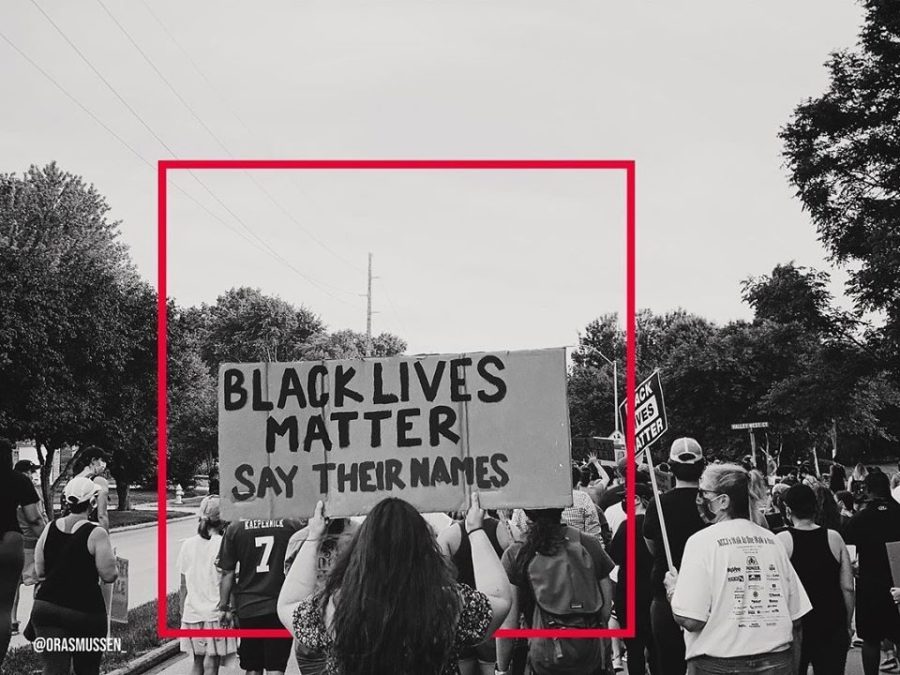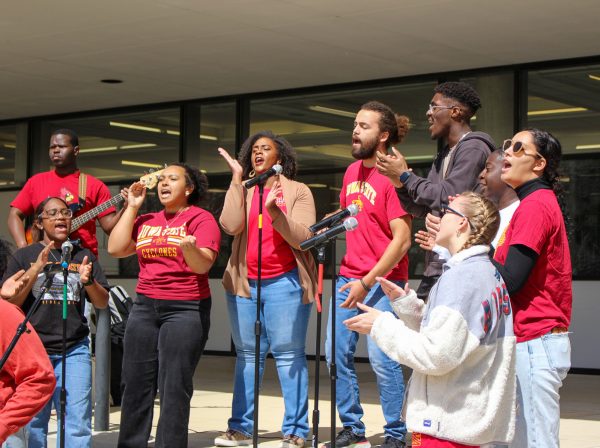Iowa State Daily Voices desk presents new series: Uplifting Black Voices
February 9, 2021
From the Civil War to now, the fight for civil rights and justice for Black folx has been ongoing. With slavery, police reform, voting suppression, racial discrimination, etc. — Black people have been fighting for their rights and to be heard.
Especially after this summer following the explosion of attention on the Black Lives Matter (BLM) movement as well as the many protests that followed the killing of George Floyd, the fight for justice, reform of different systems and the lives of Black people were at the forefront of everyone’s mind.
However, one specific topic was touched on, and that was the concept of non-Black folx and white people to listen to the stories and voices from the Black community. While many people were all for the concept of BLM, many non-Black folx and white people were still missing the point of listening, learning and following the Black people in their communities, as they are the forefront of this movement.
Specifically, there was a call for the media to properly amplify Black voices in communities across the United States and the world — including the Iowa State Daily.
In an article by the LAist, there was a focus on how journalists can uplift and amplify Black voices. The article explained three lessons and concepts journalists and those in the media should follow: a change in time, letting a story tell you how to tell it and loving and uplifting Black folx.
In the first concept of how times have changed, the focus was that journalists NEED to provide extra attention to conversations regarding Black stories because those stories don’t always make it to mainstream media.
“Black people in Black spaces are having conversations about race that never make it to the mainstream media,” the article said. “They’re discussing and dissecting social and economic dynamics that would likely sound foreign to more than half of the country. Failure to stay in the loop inevitably results in shallow coverage — the journalistic equivalent of AstroTurf. Some listeners can’t tell the difference, but Black people can.”
The second concept was to take Black voices and amplify them in the way they deserve to be amplified, as well as taking the time to report them properly.
“In the world of broadcast news, time is at a premium,” the article said. “The environment rarely lends itself to amplify Black voices. Finding the right voice takes time. Listening to that voice in a non-exploitative way takes time. Rewriting your entire narrative to reflect the fullness of the story takes time. Breaking out of colonial structures and power dynamics takes time. In this way, I believe, a news organization’s dedication to Black lives can be accurately measured by the time they allow their journalists to pursue the stories of Black people.”
The third concept was loving and uplifting Black folx and their stories, the same as any other community, and respecting their voices.
“The final lesson incorporates all lessons,” the article said. “I consider it my Golden Rule. Loving Black people doesn’t mean giving them special treatment. It means giving their voices the same respect we’ve historically given to the police. It means respecting Black anger. It means celebrating Black intersectionality. It means recognizing Black individuality. And yes, it means hiring, training and retaining Black talent.”
In order to provide media attention to the Black voices in the Iowa State, Ames and Iowa communities during this month of focus on Black history, the Iowa State Daily Diversity and Voices desks are starting a new series in order to continue to uplift and focus on the Black stories.
Iowa State Daily Diversity and Voices desks are launching a new series: Uplifting Black Voices, where readers will see the Iowa State Daily highlight the stories and narratives of Black folx in the community.
This series will begin this month, Black History Month, and proceed throughout this semester in order to bring light to the important Black voices in the Iowa State, Ames and Iowa communities.

















